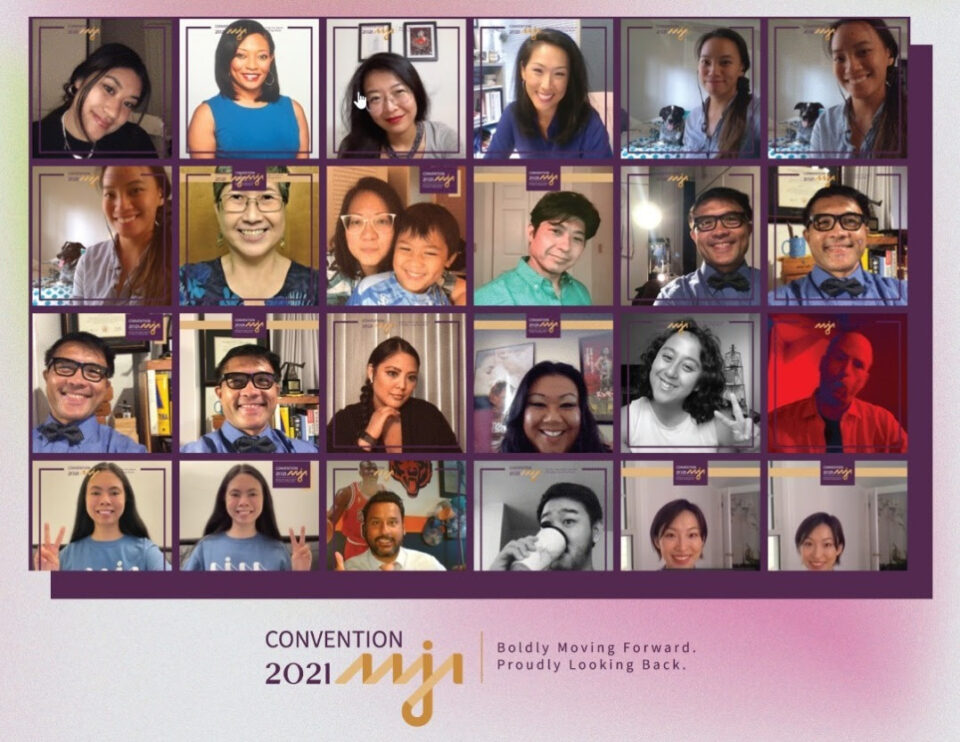Emboldened Asian Americans Say Yes
Fauci Tells NABJ, ‘Get the Truth Out There’
Short Take
Home page photo credit: Asian American Journalists Association
Support Journal-ismsEmboldened Asian Americans Say Yes
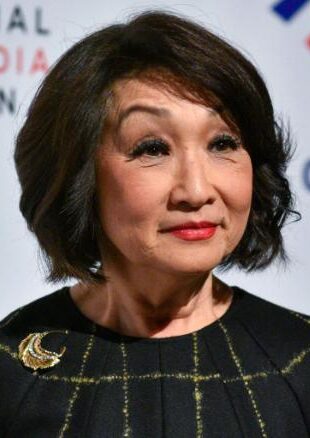 When Connie Chung (pictured) was on the rise in broadcast journalism in the late 1960s and 1970s, she said, “I assumed if I just acted like a white male, if I were bawdy and confident, just like them, I could perceive myself as a white male (video).
When Connie Chung (pictured) was on the rise in broadcast journalism in the late 1960s and 1970s, she said, “I assumed if I just acted like a white male, if I were bawdy and confident, just like them, I could perceive myself as a white male (video).
“It was appropriate for me at the time, ’cause I had to find a survival kit. I don’t necessarily think anyone else should do it. And the climate is different now, thanks to these groups, including AAJA,” the Asian American Journalists Association.
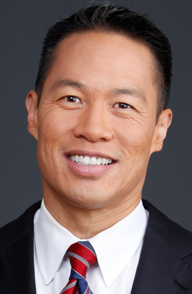 How different is the climate today? At AAJA’s 40th anniversary convention, which concluded Saturday, newsroom leaders said they wanted journalists to “be their authentic selves.” In a discussion of the killings of Asian American women in the Atlanta area, Richard Lui (pictured), an anchor for MSNBC, told reporters that in years past, he might do a story about Asian American Pacific Islanders (AAPIs) every two years.
How different is the climate today? At AAJA’s 40th anniversary convention, which concluded Saturday, newsroom leaders said they wanted journalists to “be their authentic selves.” In a discussion of the killings of Asian American women in the Atlanta area, Richard Lui (pictured), an anchor for MSNBC, told reporters that in years past, he might do a story about Asian American Pacific Islanders (AAPIs) every two years.
“I didn’t want to pitch more than that because, you know, otherwise there’s this guy with this noggin and it’s the Asian American guy doing Asian American stories, and then I kind of went through it and I realized no matter what I do, I look like this.
“So I stopped checking it at the door and I just pitched the stories. And what’s great about the moment we’re at today is I feel like there’s a huge rush of us all believing that, and knowing that, and the country being more open to saying just [because] we pitched those stories it’s not all that we are in our individual intersectionality.
The Atlanta area killings, Lui also said, were “our Stonewall. This is our Bloody Sunday.”
The March killing spree left dead eight people, including six Asian American women.
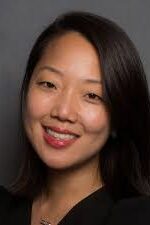 This year, said AAJA President Michelle Ye Hee Lee (pictured), “we’ve seen a real big shift and a lot of people kind of owning the fact that, you know, growing up as an Asian American or Pacific Islander journalist might bring expertise instead of, perhaps, some sort of bias.”
This year, said AAJA President Michelle Ye Hee Lee (pictured), “we’ve seen a real big shift and a lot of people kind of owning the fact that, you know, growing up as an Asian American or Pacific Islander journalist might bring expertise instead of, perhaps, some sort of bias.”
To listen to participants in this gathering, the more inclusive climate promised by the recent appointments of people of color and women to top newsroom positions is taking hold. Leaders are more sensitive to listening to younger reporters, are paying attention to work-life balance, and are open to challenges from staffers with different views. Kinder, gentler; not as much top down. And many are embracing diversity in its many dimensions.
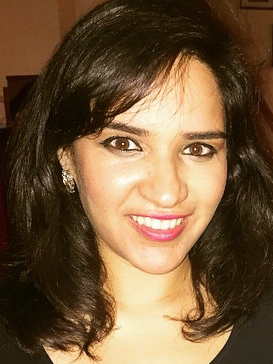 Swati Sharma (pictured), editor in chief at vox.com, said on one panel, “What’s different is that there was another racial reckoning happening in our society. We’re seeing a change in leadership, and it’s really exciting to see what leaders like us . . . can bring to the work. That era of that strong-man leadership is over; we’re moving past it. People have embraced the need for empathy and care . . . that empathy, generosity matters.
Swati Sharma (pictured), editor in chief at vox.com, said on one panel, “What’s different is that there was another racial reckoning happening in our society. We’re seeing a change in leadership, and it’s really exciting to see what leaders like us . . . can bring to the work. That era of that strong-man leadership is over; we’re moving past it. People have embraced the need for empathy and care . . . that empathy, generosity matters.
“Leaders are listening. Listening to their staff, listening to their writers. We’re having those tough conversations on a daily basis, how we can be better . . . those conversations and pushing ourselves is the big difference.”
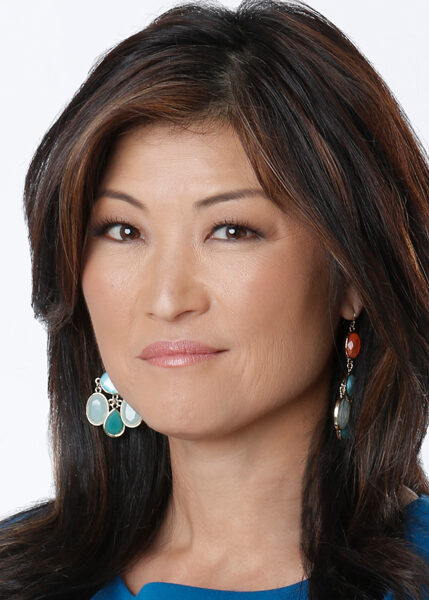 Juju Chang (pictured), co-anchor of ABC’s “Nightline,” said, “I really feel like my attitude toward being Asian on the air evolved over time. I was very kind of mute about it, and now I’m finally feeling liberated to assert my Asian American-ness. I think some of it is just sort of our cultural maturation, but the tidal wave shift was George Floyd.”
Juju Chang (pictured), co-anchor of ABC’s “Nightline,” said, “I really feel like my attitude toward being Asian on the air evolved over time. I was very kind of mute about it, and now I’m finally feeling liberated to assert my Asian American-ness. I think some of it is just sort of our cultural maturation, but the tidal wave shift was George Floyd.”
AAJA’s virtual convention attracted 1,200 registrants, according to a spokesperson, and the membership is now “more than 2,000 persons strong.” The gathering took place not only amid the increasing proclamations of support for diversity, equity and inclusion. It was accompanied by a new confidence among Asian Americans, bolstered by census figures showing the group to be the nation’s fastest growing by ethnicity, by a sense of duty to respond to the rise in anti-Asian hate crimes and by the impact of the killing by Minneapolis police of George Floyd. Although Floyd was African American, the murder galvanized Asian Americans as well.
There was also the assault on Asians from former President Donald Trump, who called the COVID-19 virus the “kung flu.” Some fear that the economic rivalry with China could potentially provoke more hostility toward Asian Americans.
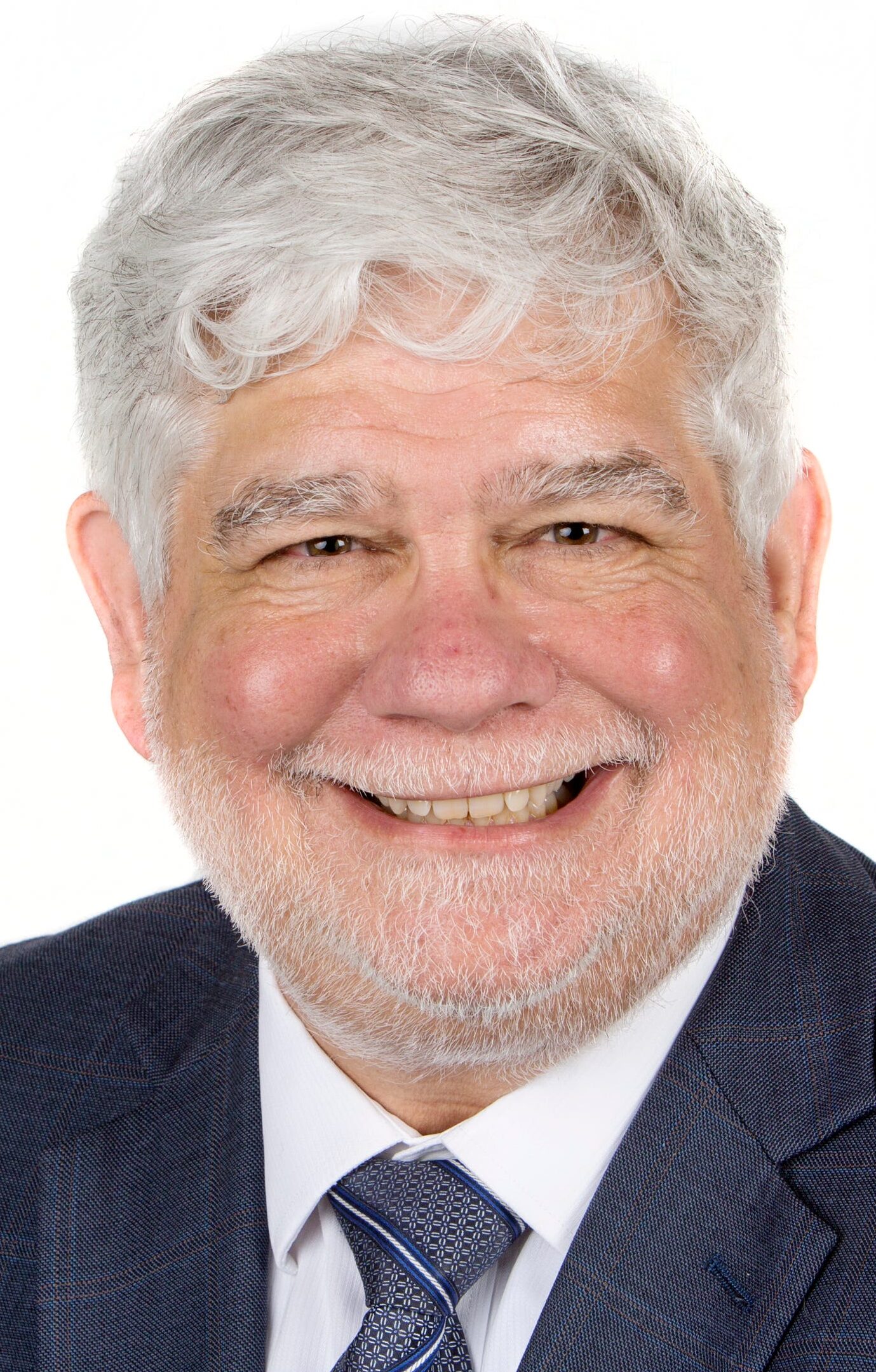 Peter Bhatia (pictured) is editor and vice president at the Detroit Free Press. His father, a professor, immigrated from India, and Bhatia has long been a diversity advocate. “We have a moment right now and we have to seize that moment, and we have to make sure that we make real, tangible progress that will be enduring,” he said at a plenary session on leadership.
Peter Bhatia (pictured) is editor and vice president at the Detroit Free Press. His father, a professor, immigrated from India, and Bhatia has long been a diversity advocate. “We have a moment right now and we have to seize that moment, and we have to make sure that we make real, tangible progress that will be enduring,” he said at a plenary session on leadership.
“That’s so important right now. . . . It’s sad that it takes something like Floyd to create opportunities in society at large not just for those of us in media but it is so important that we — to borrow a phrase from my youth — that we seize the time, as Bobby Seale way back when wrote. . . .”
Bhatia cited some indicators: NPR now says that journalists may participate in activities that advocate for “the freedom and dignity of human beings” on both social media and in real life.
Gannett, the company that counts the Free Press among its hundreds of media outlets, is implementing a new approach to crime coverage. It will focus on offering context, identifying trends and following stories to their end.
“It’s about refocusing what we do on contemporary issues that speak to the matters around equity and justice that we’re talking about these days,” Bhatia said. “So . . . as a company we’ve changed our police beats in Detroit. In particular, we’re focusing our police [coverage] not on episodic crime but on how policing is going to change in the wake of Floyd. It’s about reshaping what we do, but it doesn’t happen without relentless leadership from the top, and that’s what we’re experiencing in our company. But that’s what has to happen in every newsroom as well.”
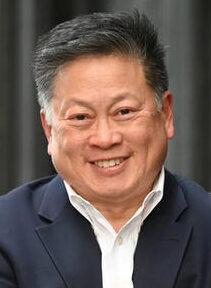 At the Providence Journal, Executive Editor David Ng (pictured) said in the same discussion, “One of the things that I work on with my staff and with reporters in general is . . . what I call emotional accuracy. You know, it’s enough to tell a story about a fire or a shooting, and, you know, repeat the facts, but I think it’s another thing so that your readers can see people’s theories, hear their stories, and also feel their stories. And I think if we can do that better than we have been doing it, you know we would be in a much better place.”
At the Providence Journal, Executive Editor David Ng (pictured) said in the same discussion, “One of the things that I work on with my staff and with reporters in general is . . . what I call emotional accuracy. You know, it’s enough to tell a story about a fire or a shooting, and, you know, repeat the facts, but I think it’s another thing so that your readers can see people’s theories, hear their stories, and also feel their stories. And I think if we can do that better than we have been doing it, you know we would be in a much better place.”
For example, Ng said, in reporting on COVID, “talk to me about the nurse in the ICU who was there the first wave and now unfortunately will be there for the second wave. . . . Our readers care about the facts, yes, but I think they want to know how their neighbors feel, and I think that’s part of the emotional accuracy of this.”
The closing plenary session, on the killings in the Atlanta area, homed in on how these principles play out in practice. It was there that Lui made his comments about no longer checking his Asian American identity at the door.
 Ng said at the previous session that he should have been more outspoken in his younger days about objectionable coverage. In today’s climate, reporter Chris Jose (pictured) of Atlanta’s WSB-TV had no such reservations.
Ng said at the previous session that he should have been more outspoken in his younger days about objectionable coverage. In today’s climate, reporter Chris Jose (pictured) of Atlanta’s WSB-TV had no such reservations.
“In a morning meeting, the conversation came up regarding potential illegal activity that happened inside some of these spas, and what we know is, even to this day there has not been any illegal activity at these spas (video), yet there was some local reporting here that dived into that.
“And on that third day of coverage, we had a white manager in our newsroom who brought up the fact that, ‘Look, we want to partner up with the AJC [Atlanta Journal-Constitution] and do an investigative report about the illegal activity inside these spas, and Sophia Choi and I — who [is] Korean-American — had to raise our hands and say, ‘Wait a minute,’ this is the third day, why are we even looking at this angle? And we went back and forth with some managers about this.
“It went all the way up top to the general manager, and thankfully, even through these difficult conversations and even after the AJC had published its story on a Saturday after the shooting, which happened on a Tuesday, we decided not to pursue that angle. But it took many difficult conversations to talk about why this could be harmful to the community and harmful to the victims and their families.”
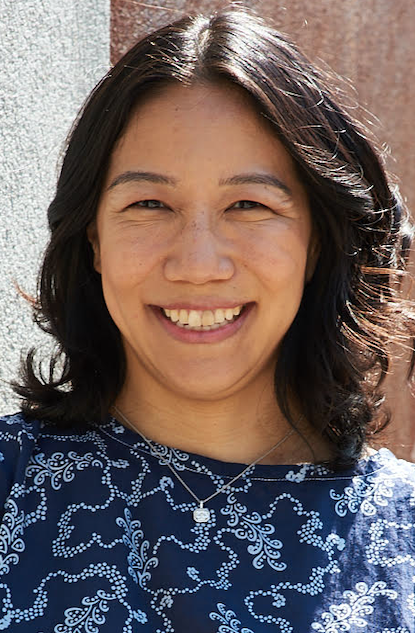 At The New York Times, national editor Jia Lynn Yang (pictured) hoisted the equivalent of a “caution” sign about repeating the regurgitation by Capt. Jay Baker of the Sheriff’s Office in Cherokee County, Ga., a spokesman for the office, of the suspect’s claim that the shootings were not related to race.
At The New York Times, national editor Jia Lynn Yang (pictured) hoisted the equivalent of a “caution” sign about repeating the regurgitation by Capt. Jay Baker of the Sheriff’s Office in Cherokee County, Ga., a spokesman for the office, of the suspect’s claim that the shootings were not related to race.
“We can’t just put that out there without context,” Yang said. “These things are inextricably linked, sexism and racism. . . . We later, I think a day or two, came back with a front page story about basically the history and context of racism against Asian American women as being about their sexuality and so you can’t sort of pick one lane or another. . . .”
For the Times’ coverage, Yang put together a team of Asian Americans, along with seasoned non-Asians such as Rick Rojas and Richard Fausset. “I sent Juliana Kim, reporter on the Metro desk.
“Juliana especially was able to really forge a really just very trusting relationship with two young men whose mother had died. Juliana just really got to know them. Went out and had dinner, did karaoke with them, and then produced a story in June about the young men who didn’t know how to be on their own.
“That was just Juliana being the right reporter for the right story and just sticking with it, and that is how I think you get the story done and it’s way beyond Asian American stories . . . it’s how you cover religion properly, it’s how you cover Congress. You need people who really understand the history, the context. They have both language and cultural literacy, and frankly I expect it of not just Asian American reporters. I need to be able to send reporters of all kinds of backgrounds to cover sensitive stories. . . . “
The Times didn’t drop the story when other events took over the headlines, and neither did others in the discussion. Jose of WSB said he’s still on it.
“I felt like I could connect to some of the victims in the coverage, that I could develop some relationships. I felt like I could make those relationships with their families, and even to this day, as we’re going through those court decisions.”
Yang said, “In my mind you want to always be sort of peeling back those layers . . .[if] there’s a big event, you stay with it from the moment you touch down on the ground and you’re doing sourcing; you’re talking to people, think about what story do you want to write and what do you want to read three months from now, six months from now, a year from now, even further out, right, and begin reporting toward that. You know, it’s hard to get the story in the moment, but just as it’s slowing down even, just begin thinking about what is sort of the next turn of the story.
“I just think [of] finding ways to unearth people’s humanity, the complexity of it. You know, we did a story probably a few weeks out that I thought was really, it was an unusual story. It was about actually the inequality between the Asian American owners of the spas and the Asian American victims.
“Just because everyone involved is Asian American, that can sometimes erase the distinctions of class and power and status between people. . . .
“I think these stories are very hard to pitch but what I’d say is . . . make the story, just make it more complicated . . . that’s where the truth is. Truth is always really, really knotty, and so when you’re pitching pieces, think about what new side of us have we not heard about? What person have we not fully humanized yet that we want to go back and do? And I’d say when you get to the story, the breaking news story, just already start thinking, ‘How do I just go deeper and deeper and deeper and come back at this?’ “
“Remember the Flowers” “just needed to say ‘Hey, this is a big deal and we must remember’ and so on,” MSNBC’s Richard Lui said.
Lui persuaded NBC to do a short documentary 100 days after the shootings. “It was an intersectional group involving all the communities of color in my [company] building. Did our best to speak with the families to really focus on the lives that were destroyed. You know, when I was reading a lot of all of our . . . members’ coverage, I was just so happy and so encouraged all throughout this, really, where we all were crying together and trying to show how to cry on air or in our writing, because that was an important part of the story.”
“Why 100 days? Because in many Asian and Asian American communities, that’s an important day of letting the soul go. . . . It wasn’t going to be award-winning or it didn’t need to be that, it just needed to say, ‘Hey this is a big deal and we must remember’ and so on.”
Ye Hee Lee, a reporter for The Washington Post, said she “wrote about the half-Black half-Asian families.
“I stayed in touch with them. I talked with them several weeks out. Told them I’d come back to Atlanta to talk about your grief. . . . We were having those conversations with NABJ.” The two groups jointly denounced racism.
“It humanizes what could be a theoretic story,” she continued. “I wanted to look at that story . . . that only reveals themselves after the breaking news moment.”
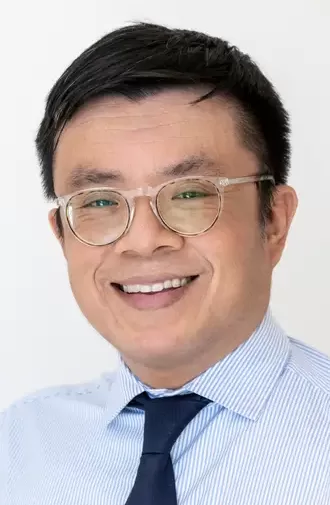 For Sewell Chan (pictured), the editorial page editor of the Los Angeles Times who is heading to the Texas Tribune as its top editor, Asian American stories are American stories.
For Sewell Chan (pictured), the editorial page editor of the Los Angeles Times who is heading to the Texas Tribune as its top editor, Asian American stories are American stories.
“Just to take one example . . . I think much of the so-called attack on so-called critical race theory it’s not really about critical race theory, it’s really about how we teach history. And once we frame it that way, you know there are interesting questions of how much do we emphasize the past versus trying to build a collective identity around a shared future.
“I do think that there’s a little bit of tension there.
“My personal view is that Americans . . . we never understood the past very well, and so at moments like 2020, the past comes raging back because we’re seeing . . . the equivalencies between lynchings of Chinese Americans, for example, in the 19th century . . . We see lynchings of African Americans.
“We see parallels perhaps in the Afghanistan invasion with our occupation of the Philippines or of Haiti and [the] Spanish-American war, so we do need to study that history, but I also think it’s an important and valid question to ask, you know, once we we have better understood our history, where do we go together as a people?
“Because I think my view is that Asian Americans are a big part of trying to piece together that answer, that evolving answer, what it means to be American. I think we have to be a part of that discussion.”
- AAJA Voices coverage (student convention project)
- Charles M. Blow, New York Times: It Was a Terrifying Census for White Nationalists (Aug. 15)
- Jelani Cobb, MSNBC: Revisiting the Powerful Thesis of the Kerner Commission (podcast)
- Brodie Fenlon, CBC News: How CBC is diving deeper when it comes to newsroom diversity
- Suzanne Gamboa, NBC News: Latinos’ next census task: Get money and power through redistricting (Aug. 11)
- Justin Gest, New York Times: What the ‘Majority Minority’ Shift Really Means for America
- Indian Country Today: 2020 Census: Native population increased by 86.5 percent (Aug. 13)
- Jens Manuel Krogstad, Amina Dunn and Jeffrey S. Passel, Pew Research Center: Most Americans say the declining share of White people in the U.S. is neither good nor bad for society
- Hanaa’ Tameez, Nieman Lab: In “the capital of income inequality,” Canopy Atlanta wants to equalize how journalism is produced
- Karena Tse and Iris Kwok, AAJA Voices: The Great Resignation: Why journalists of color left the industry
- Andrea Wenzel, Poynter Institute: The Philadelphia Inquirer is working to transform its newsroom. Here’s what it’s done in a year.
- Kimmy Yam and Sakshi Venkatraman, NBC News: Asians in the U.S. are the fastest growing racial group. What’s behind the rise. (Aug. 13)
- AAJA Voices coverage (student convention project)
- Charles M. Blow, New York Times: It Was a Terrifying Census for White Nationalists (Aug. 15)
- Jelani Cobb, MSNBC: Revisiting the Powerful Thesis of the Kerner Commission (podcast)
- Brodie Fenlon, CBC News: How CBC is diving deeper when it comes to newsroom diversity
- Suzanne Gamboa, NBC News: Latinos’ next census task: Get money and power through redistricting (Aug. 11)
- Justin Gest, New York Times: What the ‘Majority Minority’ Shift Really Means for America
- Indian Country Today: 2020 Census: Native population increased by 86.5 percent (Aug. 13)
- Jens Manuel Krogstad, Amina Dunn and Jeffrey S. Passel, Pew Research Center: Most Americans say the declining share of White people in the U.S. is neither good nor bad for society
- Hanaa’ Tameez, Nieman Lab: In “the capital of income inequality,” Canopy Atlanta wants to equalize how journalism is produced
- Karena Tse and Iris Kwak, AAJA Voices: The Great Resignation: Why journalists of color left the industry
- Andrea Wenzel, Poynter Institute: The Philadelphia Inquirer is working to transform its newsroom. Here’s what it’s done in a year.
- Kimmy Yam and Sakshi Venkatraman, NBC News: Asians in the U.S. are the fastest growing racial group. What’s behind the rise. (Aug. 13)
The First Place image from @1Brandycampbell pic.twitter.com/3m6BcpQxgE
— Visual Task Force (@vtfnabj) August 21, 2021
Fauci Tells NABJ, ‘Get the Truth Out There’
The National Association of Black Journalists ended its Aug. 18-21 virtual convention in a stronger financial position than when it started, chose President Dorothy Tucker for a second term and heard Dr. Anthony Fauci (pictured) tell the group, “We need the journalists out there, essentially spreading the truth” to counter disinformation about COVID-19 and vaccinations.
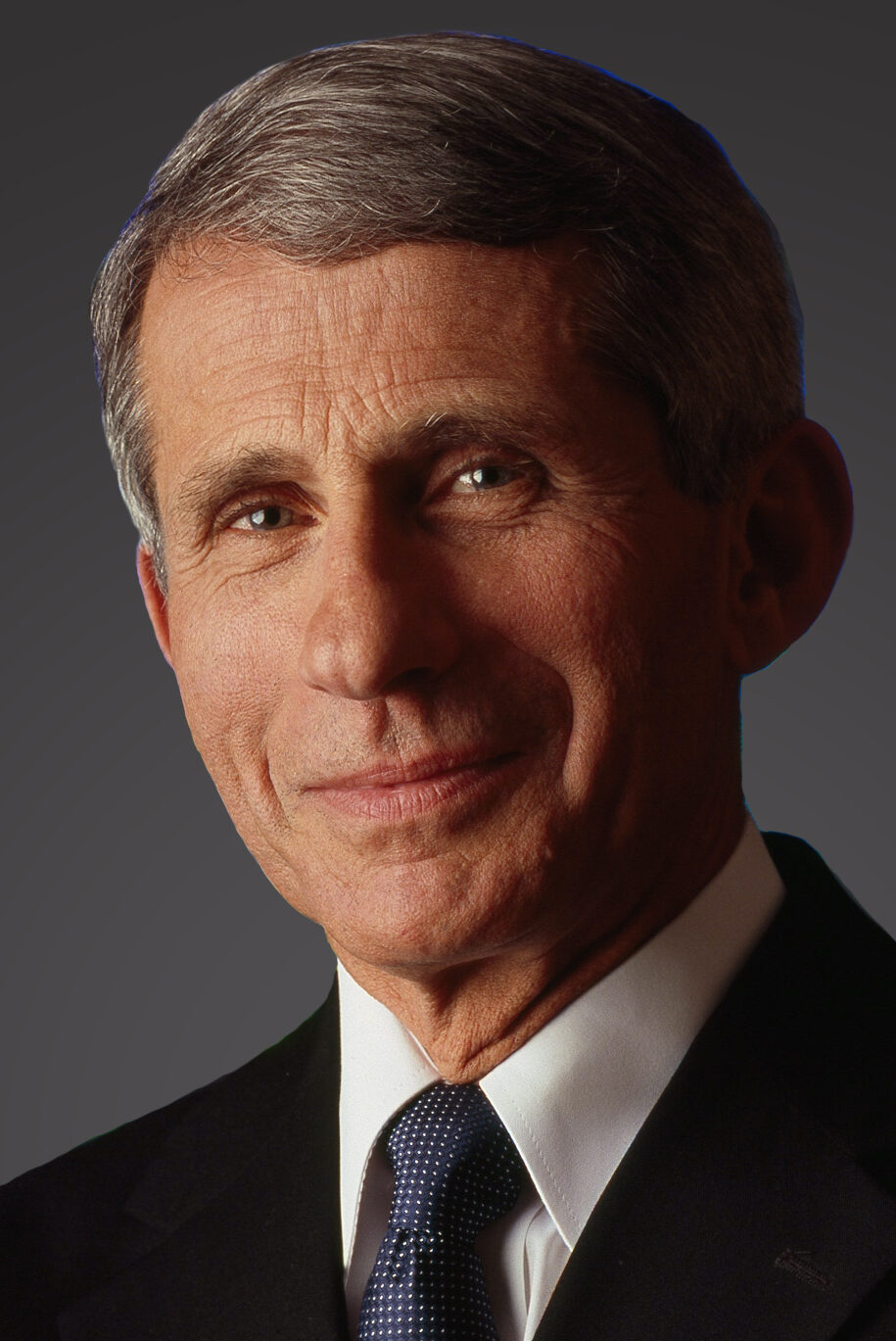 On the same day the convention began, the Kaiser Family Foundation reported, “Black people have received smaller shares of vaccinations compared to their shares of cases and the total population in about half of states reporting data. . . . For example, in the District of Columbia, Black people have received 43% of vaccinations, while they make up 56% of cases, 71% of deaths, and 46% of the total population.”
On the same day the convention began, the Kaiser Family Foundation reported, “Black people have received smaller shares of vaccinations compared to their shares of cases and the total population in about half of states reporting data. . . . For example, in the District of Columbia, Black people have received 43% of vaccinations, while they make up 56% of cases, 71% of deaths, and 46% of the total population.”
Fauci, director of the National Institute of Allergy and Infectious Diseases and the public face of the federal response to the COVID-19 pandemic, appeared Aug. 19 with two African American doctors, Ian Smith, an author and television host who participated remotely from Kenya, and Cameron Webb of the White House COVID-19 Response Team.
“What I have found in the African American and somewhat the Hispanic communities is that the reservations they have, you gotta respect,” Fauci said.
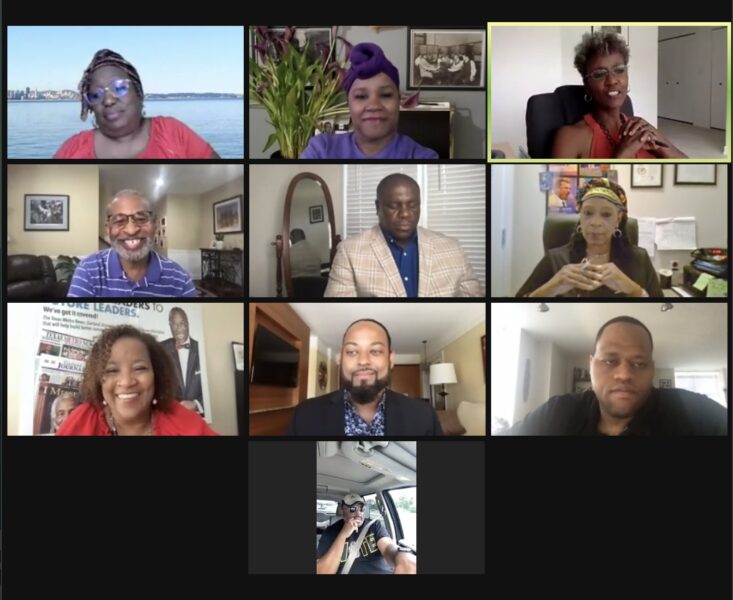
“You can’t say, ‘What are you talking about? Why don’t you want to do it?’ because their questions are absolutely valid from so many standpoints, historically and otherwise. They have questions and as Cameron said, you’ve got to get the trusted messengers to answer those questions in a very respectful way, even though they may seem outlandish, some of the things that are asked, but for the most part, they’re reasonable questions, and that’s the thing I find most important.”
Fauci also said, “I am so impressed, having been in this for so many decades, that the best way to counter misinformation and disinformation is to flood the system with correct information, and that’s what I really would like to see Black journalists do and continue to do. You know, just be an expression of the integrity of your profession, ’cause journalism is such an important part of everything we do. I mean it’s the foundation of a democracy, I believe, to get the truth out there, and the journalists are the ones that can do that, so we really need you.
“Just the way we need Cameron and we need me and we need the scientists, we need the journalists out there, essentially spreading the truth.”
The most trusted messengers are local ones, Fauci said, people from one’s own community.
Vice President Kamala Harris preceded the doctors’ panel with a pre-recorded welcome message that allowed for no questions. Executive Director Drew Berry said he was told the lack of questioning was due to a “scheduling and time conflict.”
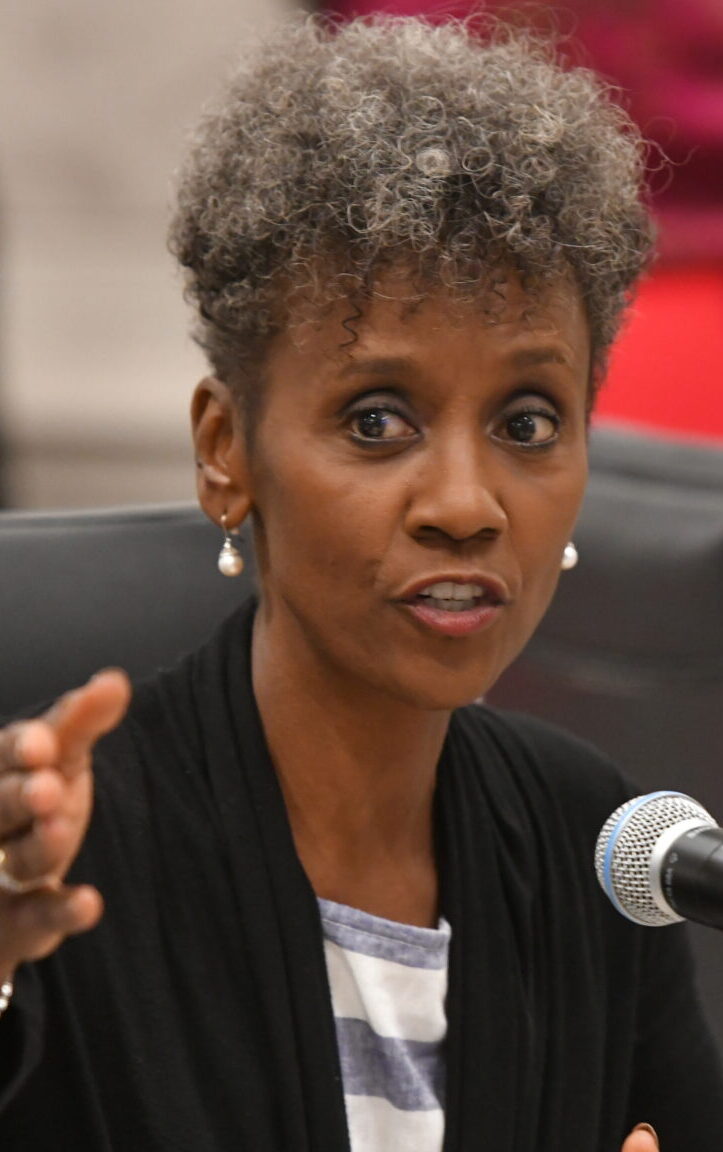 Tucker (pictured), an investigative reporter for WBBM-TV in Chicago, was re-elected NABJ president, only the second leader so re-elected in NABJ’s 45-year history. Until 2014, the NABJ constitution limited its presidents to one term. Tucker received 531 votes to Manuel McDonnell Smith’s 111, figures that prompted Tucker, questioned about the traditionally low turnout, to propose surveying members on why that is.
Tucker (pictured), an investigative reporter for WBBM-TV in Chicago, was re-elected NABJ president, only the second leader so re-elected in NABJ’s 45-year history. Until 2014, the NABJ constitution limited its presidents to one term. Tucker received 531 votes to Manuel McDonnell Smith’s 111, figures that prompted Tucker, questioned about the traditionally low turnout, to propose surveying members on why that is.
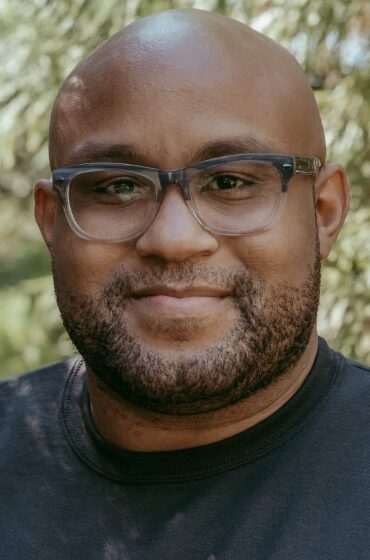 At the news conference announcing the results, Smith (pictured), managing editor at KYW-TV in Philadelphia and a former president of the Philadelphia Association of Black Journalists, continued to maintain that NABJ needed to become closer to its members and said Tucker had turned the campaign into a popularity contest. Tucker told Smith, “Your valid concerns will be addressed,” but pointed to attendance figures to challenge Smith’s assertion that members were disengaged.
At the news conference announcing the results, Smith (pictured), managing editor at KYW-TV in Philadelphia and a former president of the Philadelphia Association of Black Journalists, continued to maintain that NABJ needed to become closer to its members and said Tucker had turned the campaign into a popularity contest. Tucker told Smith, “Your valid concerns will be addressed,” but pointed to attendance figures to challenge Smith’s assertion that members were disengaged.
Berry told the board of directors that the number of attendees rose unofficially to 2,514, among the top five attendance figures of the past 12 years, though below last year’s 3,009. Berry said NABJ had to turn away potential registrants because the technology could not accommodate them.
Tucker said the organization now had 4,100 members. Treasurer Walter Smith-Randolph reported a surplus of $1,448,501, partly the result of reduced expenses for the virtual convention but subject to change as the year proceeds. Some of that money is to be used to help fund the new NABJ Media Network, intended to provide another vehicle for members’ journalism.
In addition, a new Bryan Monroe Memorial Scholarship has been created, and is expected to award $5,000 in aid to each of two aspiring news managers. Monroe, an industry leader and NABJ president from 2005 to 2007, died in January. Applications are to open Nov. 1.
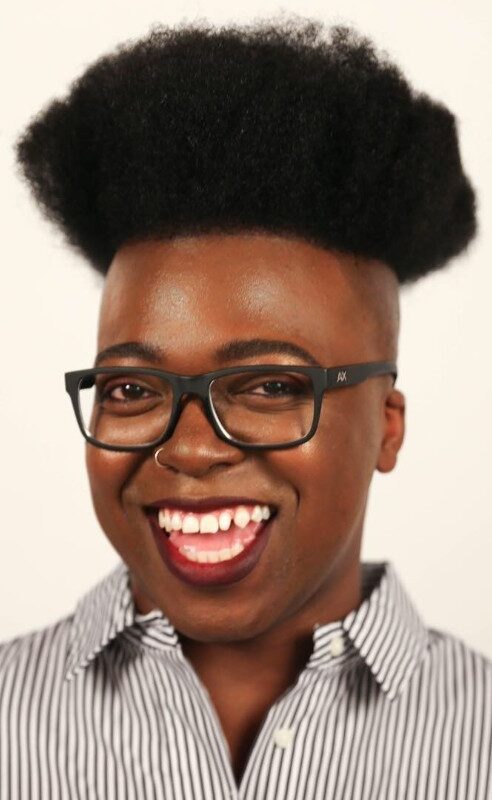 LGBTQ issues issues took on greater prominence this year, with Tre’vell Anderson (pictured), co-chair of the LGBTQ Task Force, also an NABJ board member representing Region IV, the western states.
LGBTQ issues issues took on greater prominence this year, with Tre’vell Anderson (pictured), co-chair of the LGBTQ Task Force, also an NABJ board member representing Region IV, the western states.
Tucker told the board, “There was at least one LBGT panel that was pitched and it was rejected. If there is a proposal rejected, I would like to empower the program committee to look at it — let’s go back to the producers and say, ‘ Maybe if you add this, maybe if you change that.’ “
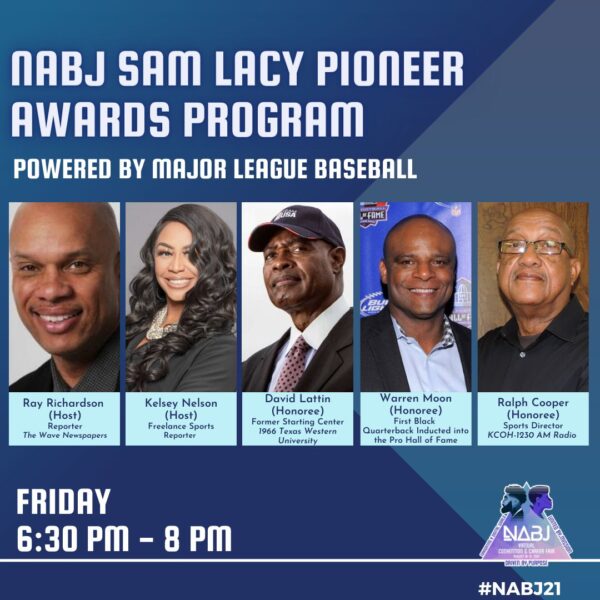
At the business meeting of the Sports Task Force, one of NABJ’s most active components, Chair A. Sherrod Blakely said he wanted “to involve the LGBTQ community more in what we’re about.”
The task force named Warren Moon, who played 10 years with the NFL’s Houston Oilers, David ‘Big Daddy D’ Lattin, who starred for Texas Western (now University of Texas at El Paso) when it won the NCAA basketball championship in 1966, the 1985 Jack Yates Lions football team and radio broadcaster Ralph Cooper as this year’s recipients of its Sam Lacy Pioneer Awards.
The Visual Task Force brought back virtually the Moneta Sleet Jr. Photo Competition, named for the famed Johnson Publishing Co. photographer.
The task force awarded first place to Brandy Campbell, a multimedia journalist at KTBS in Shreveport, La., and second place to Jarrad Henderson of USA Today during a live judging on Friday night, Task Force chair Monica Herndon told Journal-isms.
“We held our 30th Annual VTF Photo Auction virtually on Saturday afternoon, to support our scholarships and programming. Auctioneer Fred Sweets hosted with past chair Jarrad Henderson. During the livestream celebration we honored longtime VTF members Susan Mango Curtis and Rev. Kenny Irby with the 2021 Legacy Award,” Herndon added. The amount raised was not immediately available.
NABJ’s overall special honors, such as Journalist of the Year and its Thumbs Down award, are expected in October.
“With over 140 professional development sessions, workshops, receptions, and masterclasses (and more than 90 job recruiters from national, regional, and local media companies and organizations),” NABJ said in its convention summary, “attendees heard from over 400 speakers and industry experts on topics that elevated the theme: ‘Navigating A Digital World – United by Mission, Driven by Purpose.’
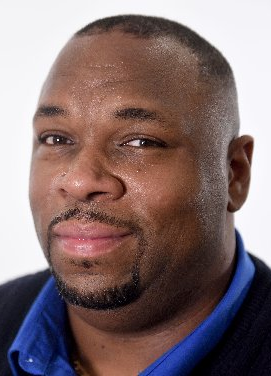 Still, many missed the pre-pandemic in-person experience. Marlon A. Walker (pictured), executive editor of the Clarion Ledger in Jackson, Miss., and a former NABJ vice president/print, received 65 comments and 111 “likes” when he wrote on Facebook:
Still, many missed the pre-pandemic in-person experience. Marlon A. Walker (pictured), executive editor of the Clarion Ledger in Jackson, Miss., and a former NABJ vice president/print, received 65 comments and 111 “likes” when he wrote on Facebook:
“A virtual convention isn’t scratching my itch.
“I miss hanging with Deon J. Hampton in the lobby. I miss trying new drinks at the lobby bar with Benet Wilson or Irv Harrell. I miss chilling in the room with Kelley L. Carter when she’s over peopling, but I get a pass. I miss being in my room and being summoned to another part of the property by Aprill O. Turner or Carol Denai Ash.
“I miss people watching with Kimberly Johnson, sharing stories in the president’s suite with past presidents Sarah J. Glover, Barbara Ciara, Condace Pressley and a host of others.
“I miss us.
“NABJ was critical to my network development early on and continues to have relevance for me as I work to find jobs for people in our industry. While the number of panels I attend is all over the place any given year, it truly is the atmosphere for me.”
- NABJ Monitor (student convention project)
- Twitter feed
Short Take
Journal-isms is renewing its search for an assistant editor who would love to help produce this column. Position is part time, 15 to 20 hours weekly. Please see the “About” section of this website for more information.
Support Journal-ismsTo subscribe at no cost, please send an email to journal-isms+subscribe@groups.io and say who you are.
Facebook users: “Like” “Richard Prince’s Journal-isms” on Facebook.
Follow Richard Prince on Twitter @princeeditor
Richard Prince’s Journal-isms originates from Washington. It began in print before most of us knew what the internet was, and it would like to be referred to as a “column.” Any views expressed in the column are those of the person or organization quoted and not those of any other entity. Send tips, comments and concerns to Richard Prince at journal-isms+owner@
View previous columns (after Feb. 13, 2016).
View previous columns (before Feb. 13, 2016)
- Diversity’s Greatest Hits, 2018 (Jan. 4, 2019)
- Book Notes: Is Taking a Knee Really All That? (Dec. 20, 2018)
- Book Notes: Challenging ’45’ and Proudly Telling the Story (Dec. 18, 2018)
- Book Notes: Get Down With the Legends! (Dec. 11, 2018)
- Journalist Richard Prince w/Joe Madison (Sirius XM, April 18, 2018) (podcast)
- Richard Prince (journalist) (Wikipedia entry)
- February 2018 Podcast: Richard “Dick” Prince on the need for newsroom diversity (Gabriel Greschler, Student Press Law Center, Feb. 26, 2018)
- Diversity’s Greatest Hits, 2017 — Where Will They Take Us in the Year Ahead?
- Book Notes: Best Sellers, Uncovered Treasures, Overlooked History (Dec. 19, 2017)
- An advocate for diversity in the media is still pressing for representation, (Courtland Milloy, Washington Post, Nov. 28, 2017)
- Morgan Global Journalism Review: Journal-isms Journeys On (Aug. 31, 2017)
- Diversity’s Greatest Hits, 2016
- Book Notes: 16 Writers Dish About ‘Chelle,’ the First Lady
- Book Notes: From Coretta to Barack, and in Search of the Godfather
- Journal-isms’ Richard Prince Wants Your Ideas (FishbowlDC, Feb. 26, 2016)
- “JOURNAL-ISMS” IS LATEST TO BEAR BRUNT OF INDUSTRY’S ECONOMIC WOES (Feb. 19, 2016)
- Richard Prince with Charlayne Hunter-Gault,“PBS NewsHour,” “What stagnant diversity means for America’s newsrooms” (Dec. 15, 2015)
- Book Notes: Journalists Follow Their Passions
- Book Notes: Journalists Who Rocked Their World
- Book Notes: Hands Up! Read This!
- Book Notes: New Cosby Bio Looks Like a Best-Seller
- Journo-diversity advocate turns attention to Ezra Klein project (Erik Wemple, Washington Post, March 5, 2014)
When you shop @AmazonSmile, Amazon will make a donation to Journal-Isms Inc. https://t.co/OFkE3Gu0eK
— Richard Prince (@princeeditor) March 16, 2018

